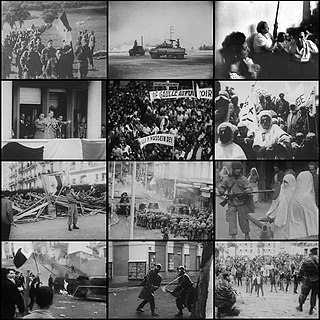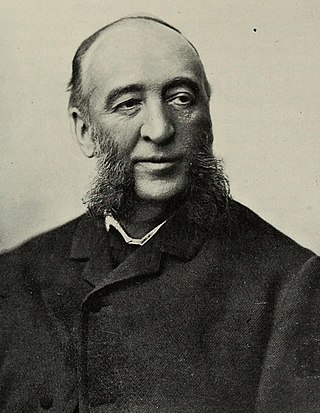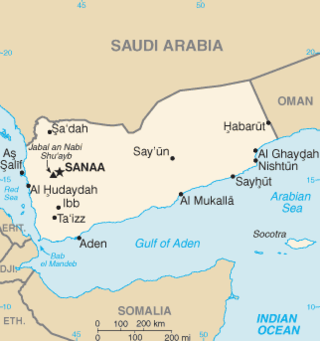
The Algerian War was a major armed conflict between France and the Algerian National Liberation Front from 1954 to 1962, which led to Algeria winning its independence from France. An important decolonization war, it was a complex conflict characterized by guerrilla warfare and war crimes. The conflict also became a civil war between the different communities and within the communities. The war took place mainly on the territory of Algeria, with repercussions in metropolitan France.

Clark is a township in southern Union County, in the U.S. state of New Jersey. As of the 2020 United States census, the township's population was 15,544, an increase of 788 (+5.3%) from the 2010 census count of 14,756, which in turn reflected an increase of 159 (+1.1%) from the 14,597 counted in the 2000 census.

Winfield Township is a township in Union County, in the U.S. state of New Jersey. As of the 2020 United States census, the township's population was 1,423, its lowest decennial census and a decrease of 48 (−3.3%) from the 2010 census count of 1,471, which in turn reflected a decline of 43 (−2.8%) from the 1,514 counted in the 2000 census. The township is the sixth-smallest municipality in the state. Winfield and Linden share the same ZIP Code.

Jules François Camille Ferry was a French statesman and republican philosopher. He was one of the leaders of the Moderate Republicans and served as Prime Minister of France from 1880 to 1881 and 1883 to 1885. He was a promoter of laicism and colonial expansion. Under the Third Republic, Ferry made primary education free and compulsory through several new laws. However, he was forced to resign following the Sino-French War in 1885 due to his unpopularity and public opinion against the war.

The Atlantic City Expressway, officially numbered, but unsigned, as Route 446 and abbreviated A.C. Expressway, ACE, or ACX, and known locally as the Expressway, is a 44.19-mile (71.12 km) long toll road in the U.S. state of New Jersey, managed and operated by the South Jersey Transportation Authority (SJTA). A controlled-access highway, it serves as an extension of the freeway part of Route 42 from Turnersville southeast to Atlantic City. The Atlantic City Expressway is signed as east-west, though the mileage and exits decrease as if one is travelling north-south. It connects Philadelphia and the surrounding Delaware Valley metropolitan area with Atlantic City and other Jersey Shore resorts, and also serves other South Jersey communities, including Hammonton and Mays Landing. The expressway intersects many major roads, including Route 73 in Winslow Township, Route 54 in Hammonton, Route 50 in Hamilton Township, the Garden State Parkway in Egg Harbor Township, U.S. Route 9 (US 9) in Pleasantville, and the Atlantic City–Brigantine Connector near the eastern terminus in Atlantic City.

French Algeria, also known as Colonial Algeria, was the period of Algerian history when the region was a colony and later a part of France. French rule in the region began after the French successful invasion of Algeria and lasted until the end of the Algerian War leading to its independence in 1962. After being a French colony from 1830 to 1848, Algeria was a part of France from 4 November 1848 when the Constitution of French Second Republic took effect until its independence on 5 July 1962.

Algerian nationalism is pride in the Algerian identity and culture. It has been historically influenced by the conflicts between the Deylik of Algiers and European countries, the French conquest of Algeria and the subsequent French colonial rule in Algeria, the Algerian War, and since independence by socialist and Islamic ideologies, Berberism and Arab nationalism.

Jacques Soustelle was an important and early figure of the Free French Forces, a politician who served in the French National Assembly and at one time served as Governor General of Algeria, an anthropologist specializing in Pre-Columbian civilizations, and vice-director of the Musée de l'Homme in Paris in 1939. Soustelle and his followers opposed any compromise with anticolonial activists in Algeria in the Algerian War.

Compulsory education refers to a period of education that is required of all people and is imposed by the government. This education may take place at a registered school or at other places.
Education in Algeria is free and compulsory for Algerians from the ages of 6 to 15. However, only half of Algerian students are enrolled in secondary schools. As of 2015, Algeria has 92 post-secondary institutions, which includes 48 universities.

Roger Frey was a French politician. His parents were of Alsatian origin. He was Minister of the Interior and president of the Constitutional Council of France.
The Universal Declaration of Human Rights has emphasized education's importance as a fundamental human right and a necessary element of development. Education encompasses the scope of social values, morality, tradition, religion, politics and history. It is the acquired body of knowledge that equips the emerging labor force with the necessary skills to ensure its active participation in economic development. The acquisition of literacy, arithmetic, and problem-solving skills improves the value and efficiency of labor. It creates a skilled and intellectually flexible labor force through training, expertise, and academic credentials. A professional working force enhances the quality of a nation's economic productivity and guarantees its suitability for global market competitiveness. According to a recent research report by the United Nations Population Fund, countries such as Egypt, Jordan, and Algeria have invested in family planning, healthcare, and education and have subsequently experienced more rapid economic development than the countries that were reluctant to invest in social development programs.

Yemen ranked 150 out of 177 in the 2006 Human Development Index and 121 out of 140 countries in the Gender Development Index (2006). In 2005, 81 percent of Yemen's school-age population was enrolled in primary school; enrollment of the female population was 74 percent. Then in 2005, about 46 percent of the school-age population was enrolled in secondary school, including only 30 percent of eligible females. The country is still struggling to provide the requisite infrastructure. School facilities and educational materials are of poor quality, classrooms are too few in number, and the teaching faculty is inadequate.

Throughout Algeria's history as an independent state, there has been conflict between women's rights activists and conservatives about the status of women in Algeria. The 1984 Algerian Family Code entrenched certain forms of gender inequality and discrimination against women. Some progressive reforms were implemented in 2005 amendments to the law, but women are still unequal under Algerian law.

The education system in Morocco comprises pre-school, primary, secondary and tertiary levels. School education is supervised by the Ministry of National Education, with considerable devolution to the regional level. Higher education falls under the Ministry of Higher Education and Executive Training.
Charles-Robert Ageron was a French historian specializing in colonial Algeria. He was born on 6 November 1923 in Lyon and died on 3 September 2008 in Kremlin-Bicêtre.

Guy Alcide Mollet was a French politician. He led the socialist French Section of the Workers' International (SFIO) from 1946 to 1969 and was the French Prime Minister from 1956 to 1957.
The Constantine Plan was an economic development program aiming to lessen the socio-economic gap between citizens of French Algeria and Metropolitan France. Financed by French capital, it was introduced in 1958 by President Charles de Gaulle during the height of the Algerian War in an attempt to quell uprisings of Algerian independence. The plan was structured based on the former Maspétiol Report, and the report entitled “Les perspectives décennales du développement économique de l'Algérie”, and officially commenced on October 3, 1958 after de Gaulle gave his speech in the Algerian city of Constantine.
The 1920 Algerian Political Rights Petition was the first petition to claim the political rights of Algerians within French Algeria following the 1919 Algerian municipal elections.